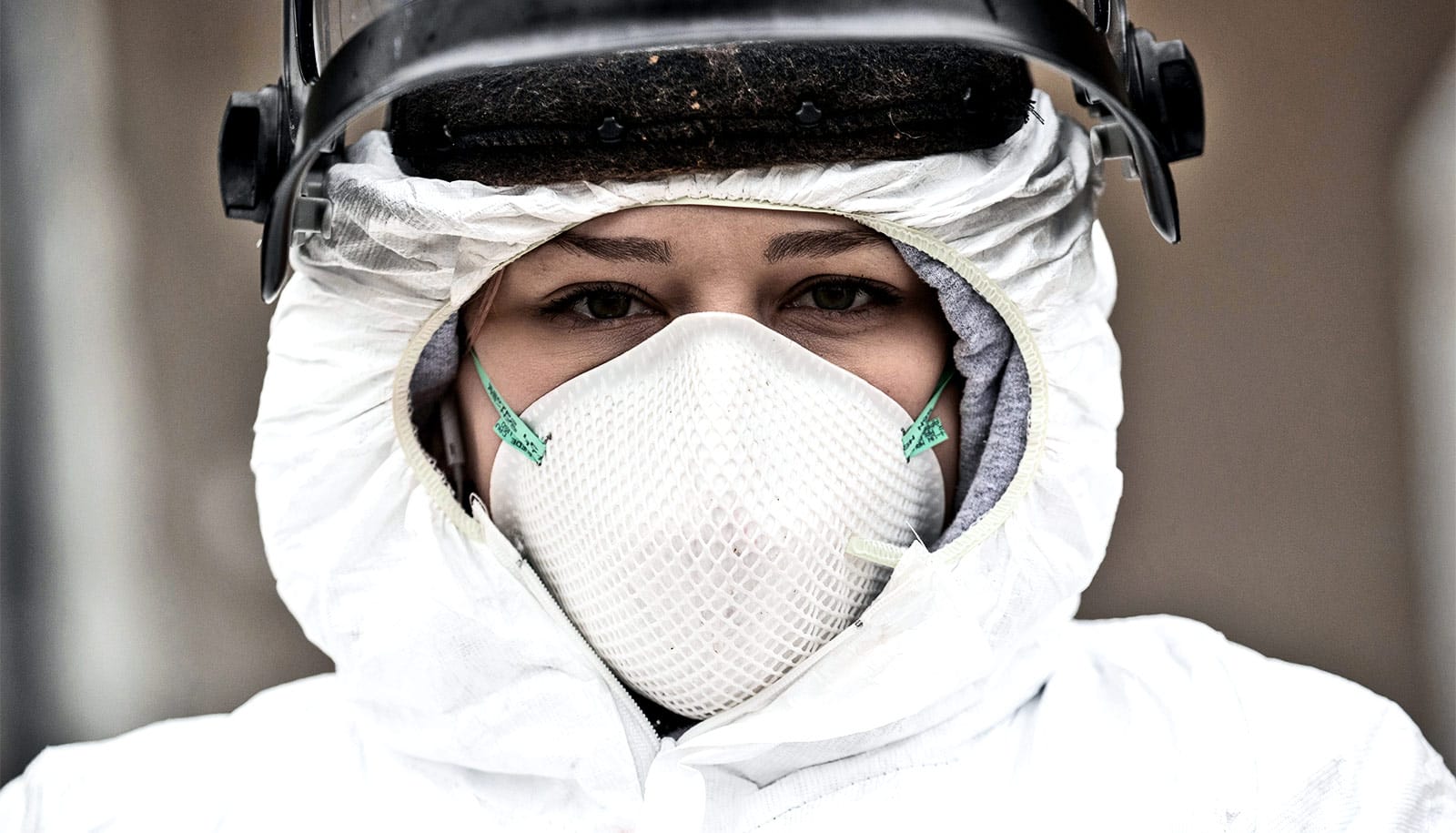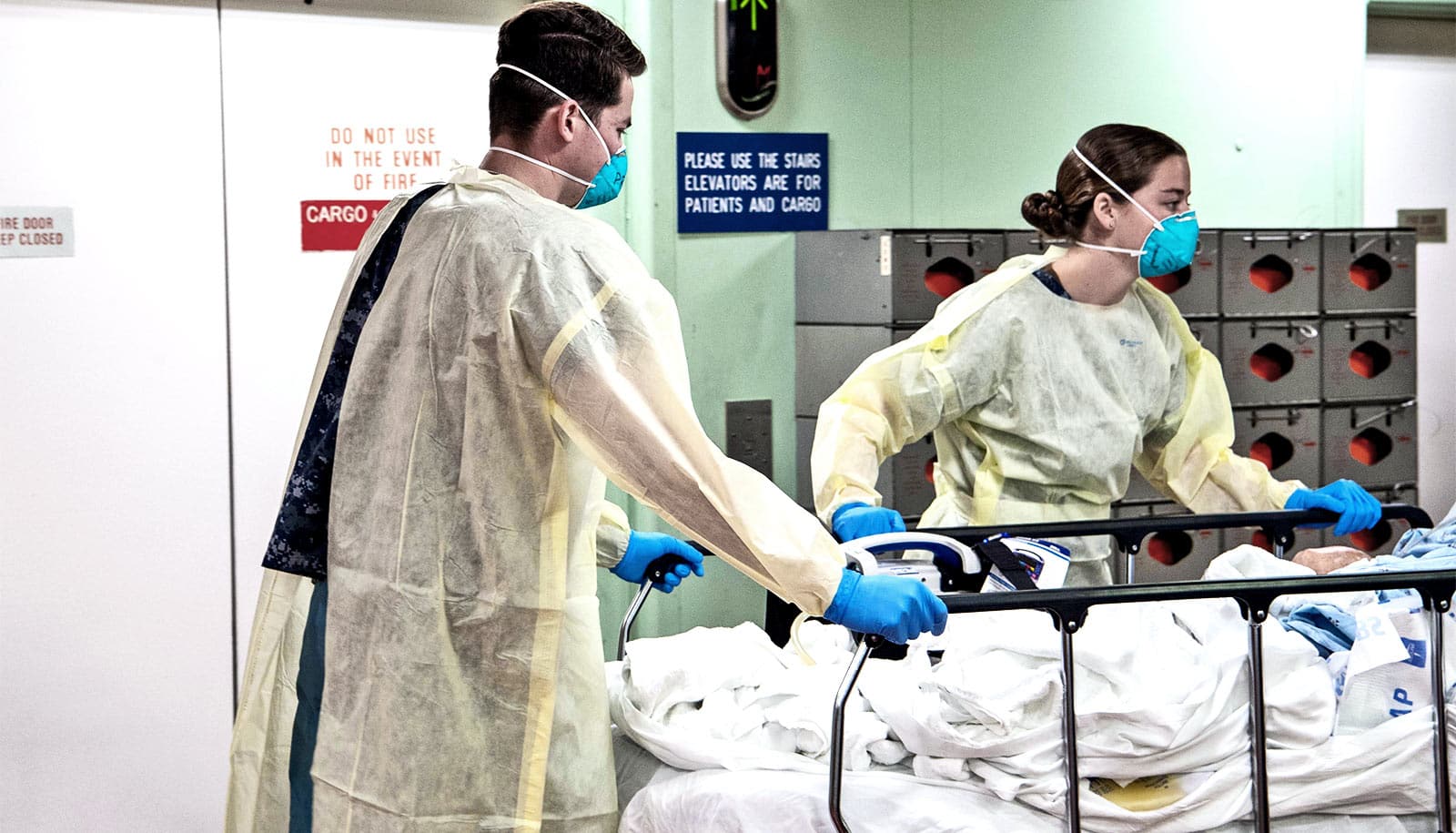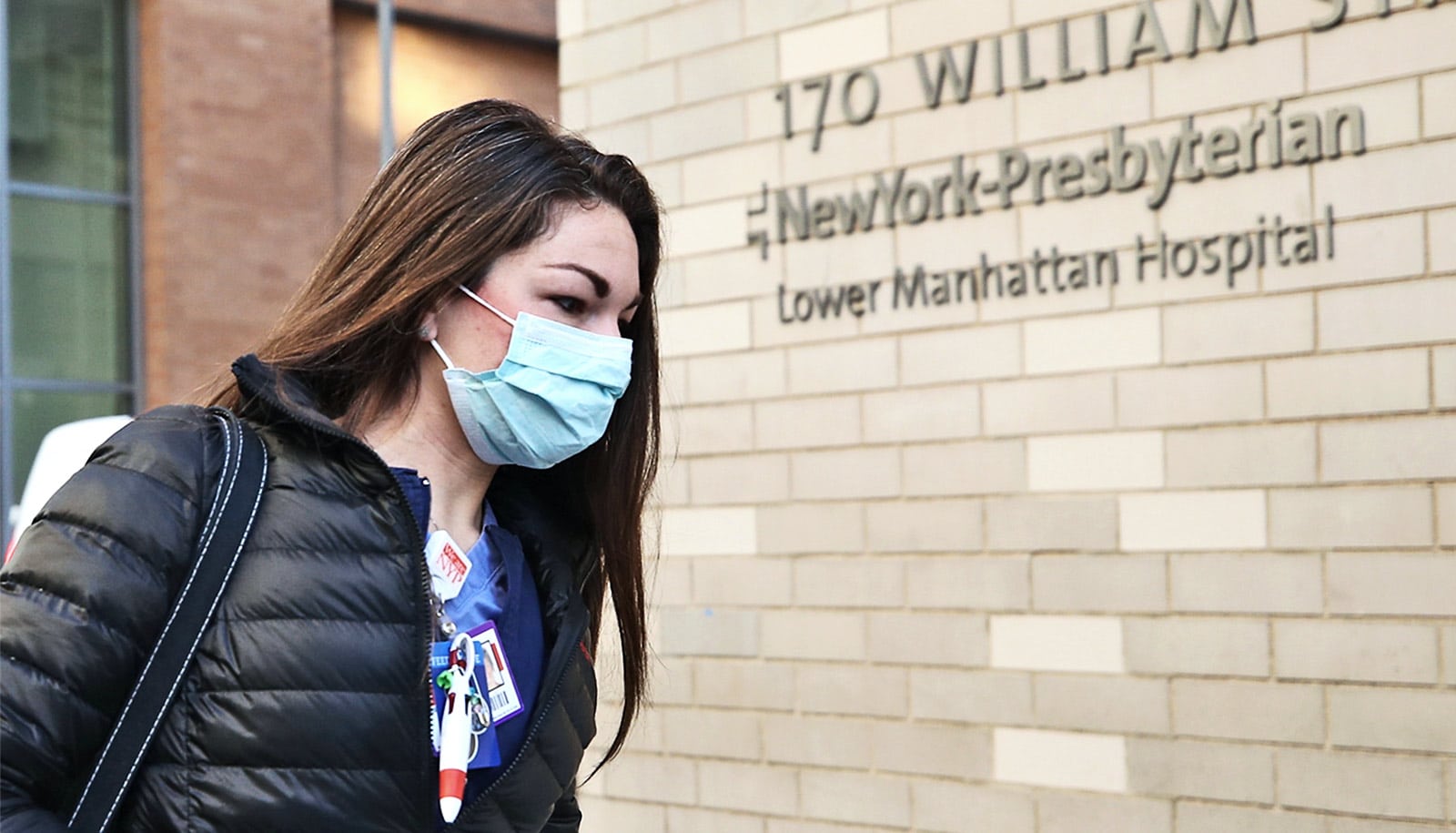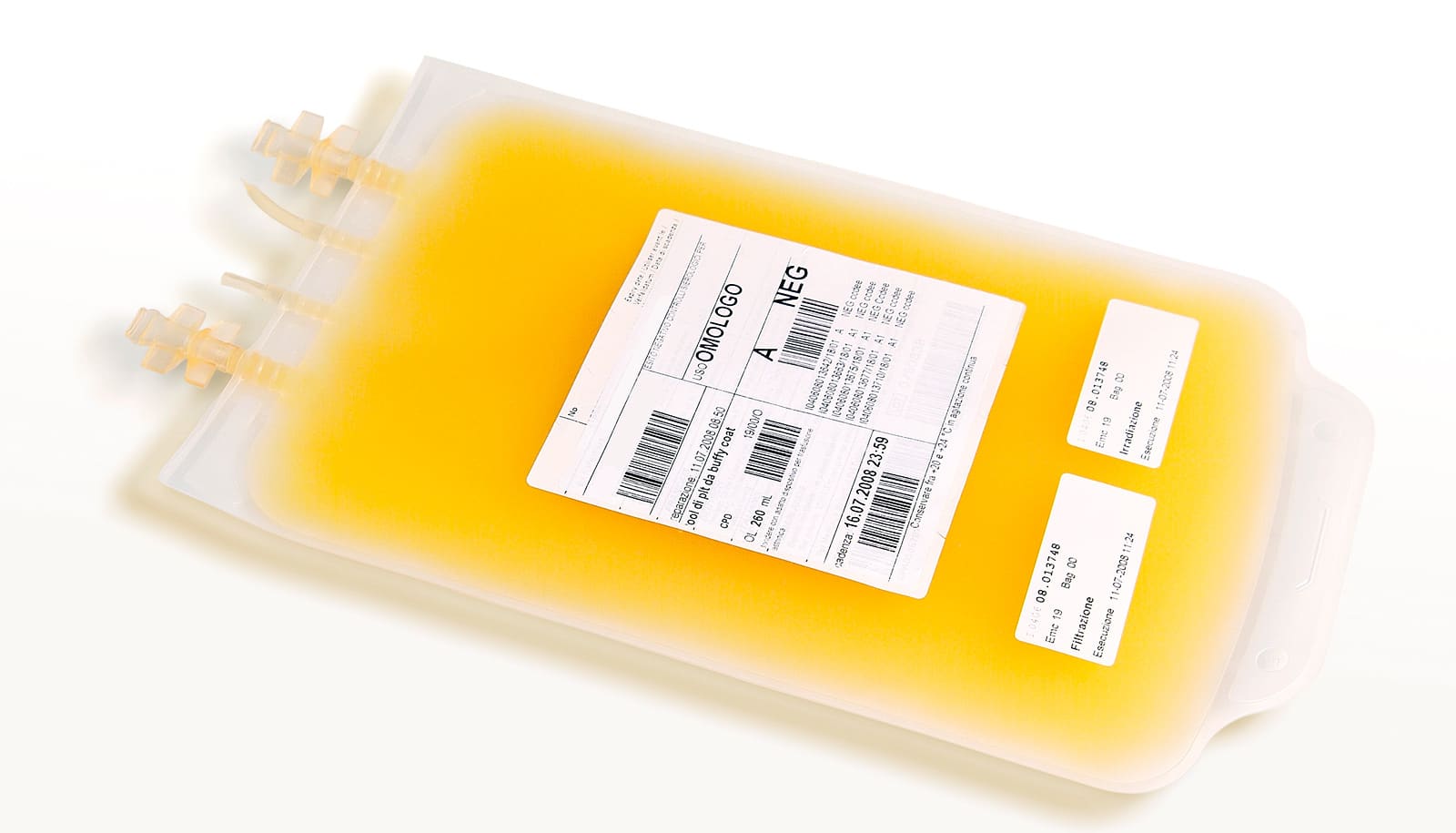As the number of confirmed COVID-19 cases accelerates, nurses on the front lines of the health care response find themselves making high-stakes decisions for patients and their own personal lives.
“We are in uncharted territory in response to the magnitude of the pandemic,” says Cynda Rushton, a professor at the Johns Hopkins School of Nursing and Berman Institute of Bioethics. “It’s a time of great stress and uncertainty, and nurses are rising to the challenge.”
Two weeks ago, Rushton—author and editor of Moral Resilience: Transforming Moral Suffering in Healthcare (Oxford University Press, 2018)—helped create the Frontline Nurses Wikiwisdom Forum, a virtual safe space where nurses can share their challenges and experiences during COVID-19.
“We know that nurses are the backbone of American health care, and often its heart and soul,” the site says. “The COVID-19 pandemic is testing all of us, but nurses are on the front lines. This space will be available 24/7 until America exits this crisis. Join us. Share your knowledge, experience, and challenges about working on the front lines of a pandemic. We know you are overworked, understaffed, possibly heartbroken and anxious, but always courageous. Feeling part of a community, even a virtual one, can help.”
Here, Rushton talks about the conditions and decisions nurses encounter daily while they wrestle with the massive health care challenges posed by COVID-19:
How has nursing changed as the US confronts the COVID-19 pandemic?
Nurses’ roles are now more important than ever. Nurses are often the last thread of compassion for patients. They’re the ones doing the screenings, taking care of the critically ill, implementing triage protocols, communicating to families, and attending to the dying.
Nurses in every role are impacted. They’re being asked to work in areas of the hospital that aren’t their normal specialty.
They’re providing telehealth consultations. They’re being redeployed to learn new skills and take new roles—as safety officers, and taking care of critically ill patients. They’re making triage plans operational. We’ve had to reallocate our resources in profound ways, and nurses are innovating and leading in the midst of the crisis.
From an ethical standpoint, what new challenges are nurses facing?
For nurses, our ethical framework has focused on the well-being of individual patients. Historically, decisions were made based on the autonomy of patient’s preferences and values. As the pandemic worsens, these decisions will be made using triage protocols.
We have to enlarge our ethical perspective to more fully integrate a public health framework that maximizes the good for more people and minimizes the harm, so that people most likely to benefit from scarce resources receive them.
That shift leaves nurses feeling like they’re abandoning their individual patients. They’re not able to provide the level of care they’re used to. The gap between what they can do and what they believe they should do creates moral distress, a sense that they’re compromising their integrity.
In the midst of this crisis, it’s necessary to reconsider what fairness and justice means, and to recalibrate our ethical obligations in response to the severe conditions.
What exactly are those obligations?
They’re very complex. Nurses always have obligations to the patient in front of them, but the pandemic imposes so many limitations. We can’t say, “Whatever you prefer is available,” but we can say, “Here’s how I’m able to help you with the resources we have.” It might be that I can offer my knowledge and skills to relieve your symptoms and help you make decisions, or provide options for palliative care or spiritual support, or simply listen to your fears and concerns.
At the same time, nurses have to consider how we can benefit more people. This often means making room for sicker patients by discharging patients who would under other circumstances be admitted.
Moment-to-moment decisions are required on how to use equipment, medications, and resources when there aren’t enough for everyone.
And what obligations do nurses have to themselves and their own families?
We always begin with patients as our first priority in our professional ethical framework. That doesn’t mean we don’t have obligations to our own well-being and families. Nurses are grappling with questions like, “Am I potentially causing harm to my family by coming home from work every day?” and “How do I balance the needs of my loved ones with the endless needs of patients?”
The stakes are very high, and unfortunately there are no good answers. Part of being able to find integrity here is accepting the reality of our current situation and living with uncertainty—acknowledging we’re making decisions under constrained and difficult circumstances.
However, the American Nurses Association Code of Ethics is clear: Nurses have the same obligations to self as to others. Investment in one’s well-being is not optional; it’s a moral mandate.
The risk of burnout right now seems especially high.
Even before this crisis hit, burnout levels among clinicians were escalating at alarming rates. Last year, I served on the committee for a National Academy of Medicine report looking at these issues. This pandemic has stressed an already stressed health care system.
What I know about clinicians is that in a crisis, they show up. What’s most concerning now are the long-term consequences. It’s not only post-traumatic stress but this feeling in some people that they’re acting against their own consciences in certain actions during the crisis.
The fallout of that is significant moral distress or moral injury, which accumulates over time. And we can’t wait to take measures to manage that distress. We must begin now.
How can it be managed?
I’ve written about the concept of moral resilience for health care workers. Some strategies include using tools for ethical analysis to determine the best course of action. We also need to build our neural pathways for self-awareness and self-regulation, through practices like mindfulness.
This helps our nervous system regain balance so we don’t become stuck in fight, flight, or freeze. It also involves self-stewardship—prioritizing what nourishes our bodies, minds, and sprit, and engaging resources that have supported us through ethical challenges before.
Nurses also really benefit from finding outlets. At Hopkins, we’ve offered the Mindful Ethical Practice Resilience Academy for frontline nurses. And just this week, we created a new program, Moral Resilience Rounds, a virtual gathering of clinicians who work in all variety of settings, who can share ethical challenges they’re facing and learn from each other.
Can you tell us about the new Frontline Nurses WikiWisdom Forum?
I was very concerned about nurses saying they felt isolated and didn’t have safe spaces to share their experiences. So I reached out to colleagues to create this resource. It’s a moderated, crowd-sourced forum, and we’re inviting nurses on the front lines to join and share.
So far, it’s a range of nurses who are outraged at the lack of guidance at the national levels and lack of personal protective devices; and those who are worried about risks to their own families. Then there’s also incredible posts about the importance of community and solidarity so nurses can be inspired by each other’s courage.
Here’s one post (used with permission):
“The nightmare is real—and it has come home.… As a fourteen-year veteran of the emergency department I stand poised with my colleagues at the pier—reining in a river with a Dixie cup—and I have never been more proud to call myself a nurse.” – Stacy N.
At the end of this crisis, we’ll identify key participants and summarize themes to create a report for the American Journal of Nursing. We want to provide recommendations from frontline nurses to inform our health care system’s future responses to crises so we are never unprepared in the way we are with COVID-19.
What is giving you hope right now for nursing?
I think this pandemic only highlights and elevates the central role that nurses serve in health care. We’re seeing the many different ways nurses can contribute, adapt, and take the lead.
I recently listened to some of our graduates from the Johns Hopkins School of Nursing talk about how they’re adjusting to “the new normal.” To hear them talk about their growth, and the stretching they’re doing, is really inspiring. In that there’s hope.
Source: Johns Hopkins University



